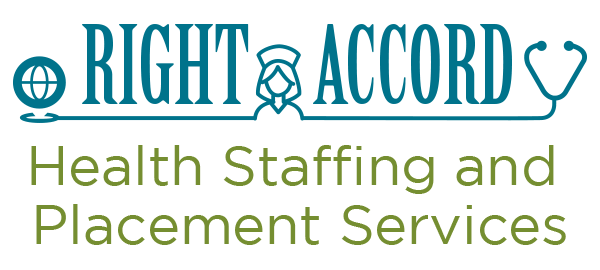In the intricate web of the healthcare system, the role of nurses is pivotal. However, the persistent challenge of nurse staffing shortages casts a looming shadow over the industry, influencing patient outcomes, staff morale, and overall healthcare quality.
In this direct and informative blog post, we will delve into the tangible effects of nurse staffing shortages on the healthcare system, examining the root causes, consequences, and potential solutions.
Understanding the Landscape
Nurse staffing shortages have become an enduring issue, affecting healthcare systems globally. The repercussions extend beyond the immediate concerns of inadequate staffing levels; they permeate the entire healthcare ecosystem.
Strain on Patient Care:
At the core of the issue is the impact on patient care. Insufficient nursing staff can lead to longer wait times, delays in treatment, and reduced personalized attention for patients. This strain on patient care quality not only affects individual outcomes but also places additional burdens on healthcare professionals.
Increased Workload and Burnout:
Nurses on the frontline bear the brunt of staffing shortages, often shouldering heavier workloads. The constant juggling of responsibilities can lead to burnout, negatively affecting job satisfaction and, subsequently, the overall morale of the healthcare
workforce.
Adverse Effects on Patient Safety:
Nurse staffing shortages have been linked to an increase in adverse events and medical errors. The lack of adequate staffing compromises the ability to provide vigilant monitoring and timely intervention, putting patient safety at risk.
Financial Implications for Healthcare Institutions:
The financial toll of nurse staffing shortages is significant for healthcare institutions. Increased patient readmissions, longer hospital stays, and potential legal repercussions from adverse events can contribute to rising costs. Investing in preventive measures becomes crucial to maintaining financial sustainability.
Consequences for the Healthcare System:
The ripple effects of nurse staffing shortages extend beyond individual hospitals or clinics, impacting the broader healthcare system.

Struggling with Epidemics and Public Health Emergencies:
In times of epidemics or public health emergencies, nurse staffing shortages exacerbate the challenges of managing increased patient volumes. The healthcare system’s ability to respond effectively is compromised, posing a threat to public health.
Diminished Capacity for Specialized Care:
Specialized units, such as intensive care or critical care, require a well-staffed and highly skilled nursing workforce. Staffing shortages in these areas limit the healthcare system’s capacity to deliver specialized care, affecting patients with critical health needs.
Erosion of Public Trust:
Consistent nurse staffing shortages erode public trust in the healthcare system. When patients and their families perceive a lack of resources and attention, confidence in the ability of the healthcare system to provide quality care diminishes.
Addressing Nurse Staffing Shortages

To mitigate the impact of nurse staffing shortages on the healthcare system, proactive measures are essential.
Comprehensive Workforce Planning:
Implementing comprehensive workforce planning involves anticipating future healthcare needs and adjusting staffing levels accordingly.
This approach requires collaboration between healthcare administrators, policymakers, and educational institutions to ensure a steady supply of well-trained nurses.
Investment in Nursing Education:
Increasing investment in nursing education programs is critical to addressing long-term staffing shortages.
By expanding educational opportunities and providing financial incentives, more individuals can be encouraged to pursue nursing careers, contributing to a sustainable workforce.
Retention Strategies:
Equally important is implementing effective retention strategies. Recognizing and rewarding the dedication of nursing staff, providing opportunities for professional development, and fostering a supportive work environment contribute to higher staff retention rates.
Technology Integration:
Leveraging technology to optimize workflows and automate routine tasks can alleviate the burden on nursing staff. By streamlining processes, nurses can focus on delivering high-quality, personalized patient care.
Conclusion
In conclusion, nurse staffing shortages have far-reaching implications for the healthcare system.
The strain on patient care, increased workload, and potential adverse effects on patient safety necessitate urgent attention and proactive solutions.
By investing in nursing education,
implementing comprehensive workforce planning, prioritizing retention strategies, and embracing technology, the healthcare system can address the root causes of staffing shortages and build a resilient foundation for the future.
As we confront these challenges, let us reaffirm our commitment to providing quality, compassionate care for all.

Let’s Get Started
Ready to become a US licensed nurse? Let us help you get started! Visit our website to learn how you can begin your journey as an American RN today.
In my previous Blog, I talked about the 3 Steps on Applying for Nursing Job in the USA. Check the link if you haven’t read it yet.
But if you’re interested to watch the full detailed 3-part videos in advance, here is the way to register and get your exclusive access:
 About the Author
About the Author
Rosemarie Tamunday Casanova, RN, BSN, MHA – CEO
I have been a nurse for over three decades and have worked in various settings, including long-term care facilities, teaching hospitals, and trauma centers. Over the years, I have held several critical care positions and even earned a master’s degree in Health Administration. My journey in entrepreneurship began in 2000 when I co-founded a staffing and recruitment agency with my partner, Health and Technology Professionals.
After relocating to Florida, I established my own Home Care Agency and have been operating it successfully for over a decade. Despite our success, I have always been aware of the ongoing need for registered nurses in the US. This led us to reignite our recruitment services and assist international registered nurses in finding employment in the United States.




